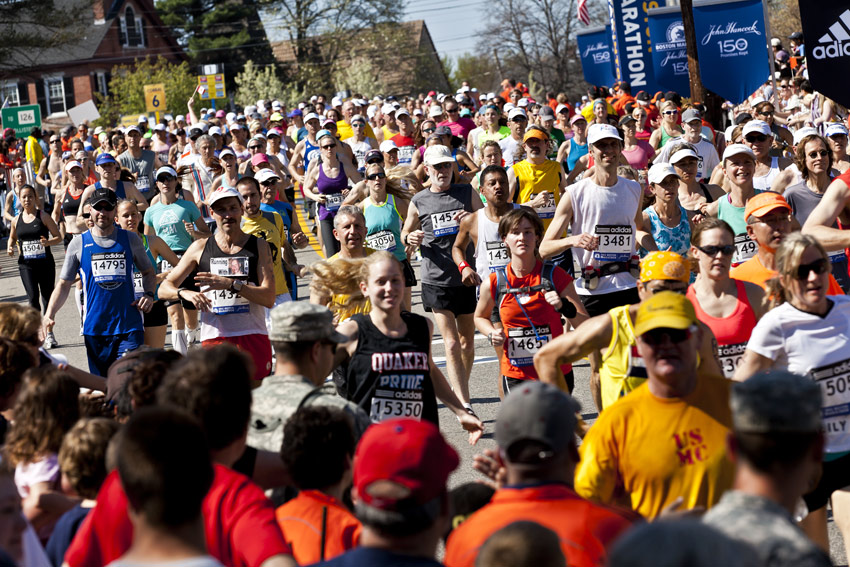There’s A Black Market For Boston Marathon Bibs
Participants in the annual Boston Marathon spend a lot of time training for the coveted event, securing a spot by qualifying prior to race day, all the while trying to meet fundraising goals that typically start around $4,000.
But while determined runners hit the pavement and the donation trail to get ready for the race, others sit back and wait for unwanted Boston Marathon bibs to go up for grabs, and then they swoop in and run the marathon, something race organizers say is a problem year after year and puts potential unregistered runners—and the Boston Athletic Association—at risk. “It’s an ongoing problem with any major event. Especially people who register way in advance and then get hurt and decide they don’t want the money to go to waste. Or maybe they want to make a profit,” says Marc Davis, communications manager for the BAA.
Currently, there are more than five requests posted on Craigslist, just one week before the marathon, asking people who can no longer run in the race to sell off their bibs for anywhere from $300 to $350:
Last year, a month before the race, non-qualifiers were offering to raise $3,000 in exchange for a pre-registered running number. In some cases, organizations offered to give away a bib to a runner if they could come up with the required $4,000 in donations in time.
But Davis says giving away bibs to those who aren’t officially registered in the BAA’s system is an “extremely, extremely dangerous” thing to do. “From our side, we don’t know who that person is, they haven’t abided by our rules and haven’t agreed to our terms and participating in our race,” he says. “On the other side, it’s extremely risky for the individual to run under someone else bib because if they go down for any reason, whether from tripping or falling down on something, we know nothing about this person. We don’t know if they are allergic to any medications [if they need medical attention], and we don’t know who their emergency contact is.”
Davis says putting bibs up for cash at the last minute also cheats the people who qualified and registered, and followed proper parameters and restrictions. To prevent these types of discrepancies, marathon officials monitor Craigslist and eBay, where Davis says most bibs are for sale. “We have people that monitor those entities … and we try and basically keep track of those people attempting to sell their number,” he says.
Davis says the association doesn’t have time to police everyone and make sure every runner is who they say they are, however, they aren’t afraid to call out black market bib buyers and sellers. “We check the Internet in general. We are not the police and we don’t have any major jurisdiction, but we do anything from subtly notifying people, to sometimes calling them out.”
For qualified runners like Will DiTullio, selling bibs at the last second doesn’t just cheat the association, but it also cheats the participant. “You never get the full appreciation about having your name in the official training book,” he says.
A second-year participant, DiTullio says there isn’t much people can do to put an end to the black market transactions, though. “It would bother me a little bit, if you can get that stuff on the black market, but as long as they put in their time and effort for training, there isn’t much you can do about it.”




